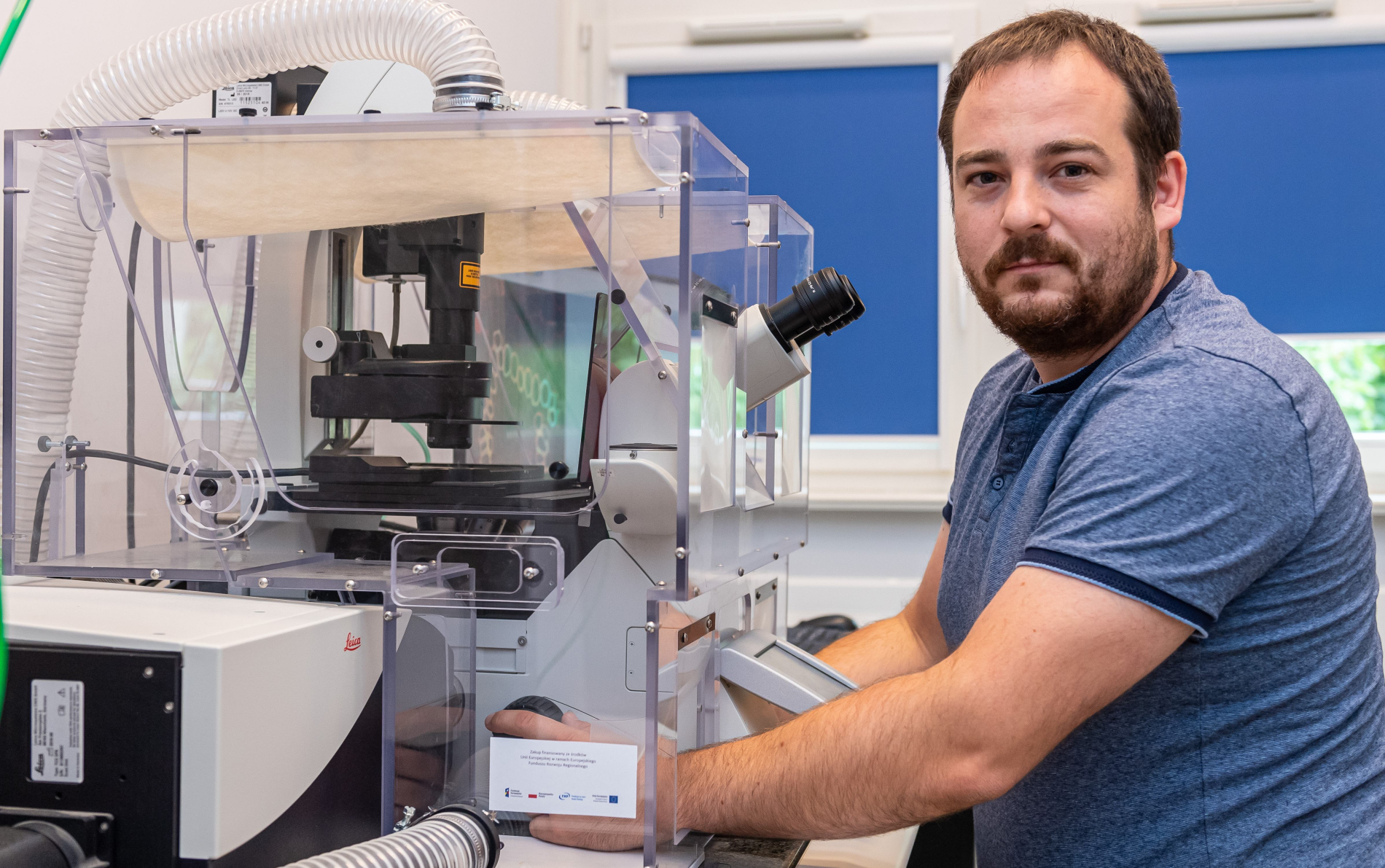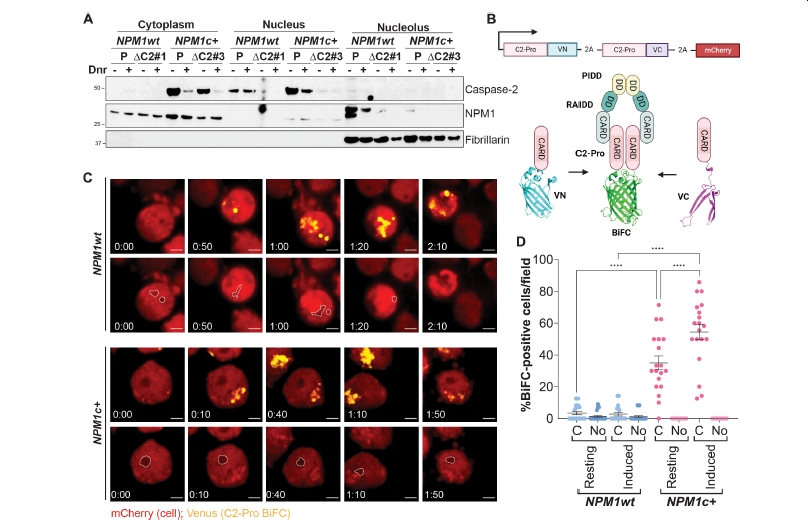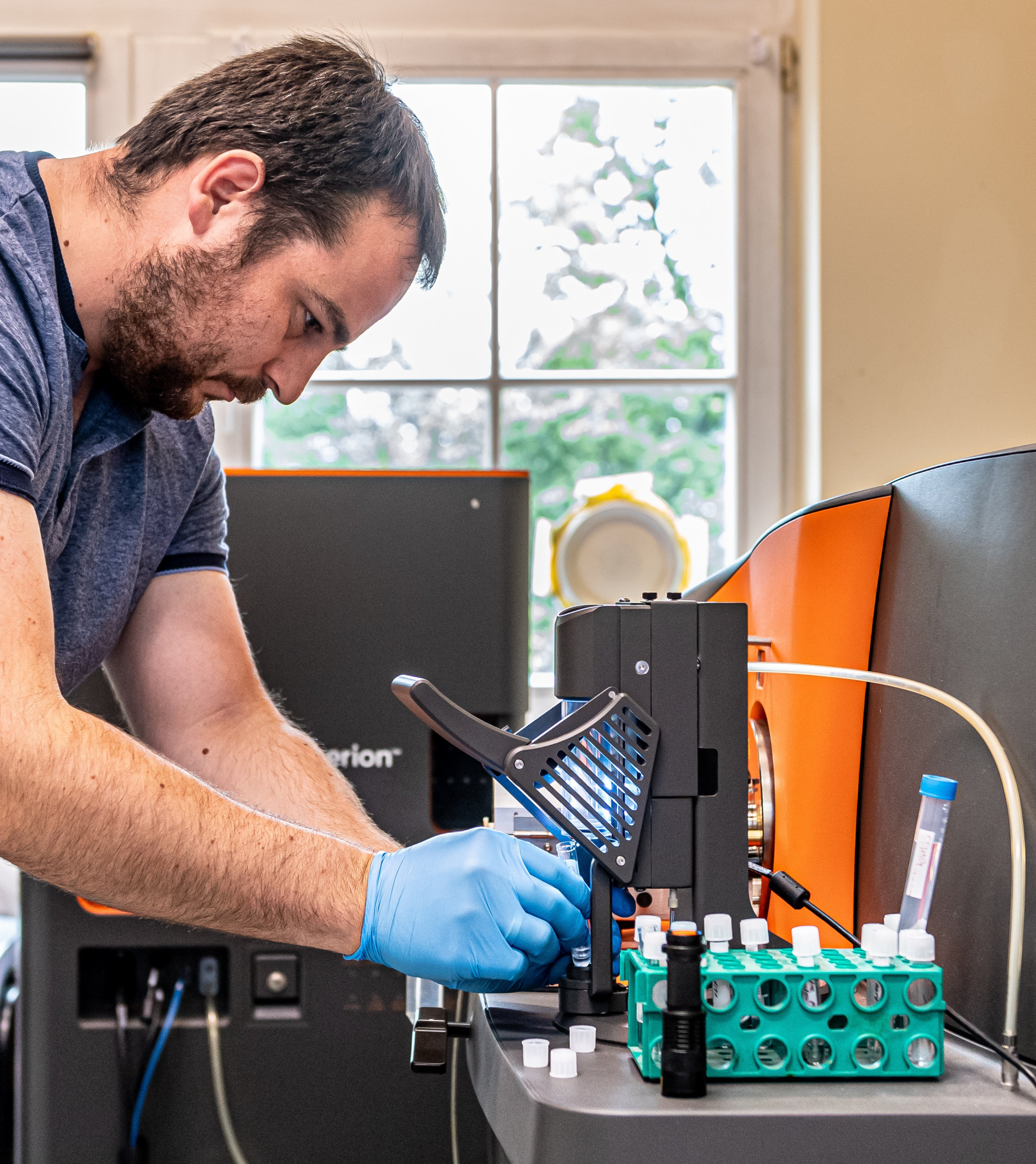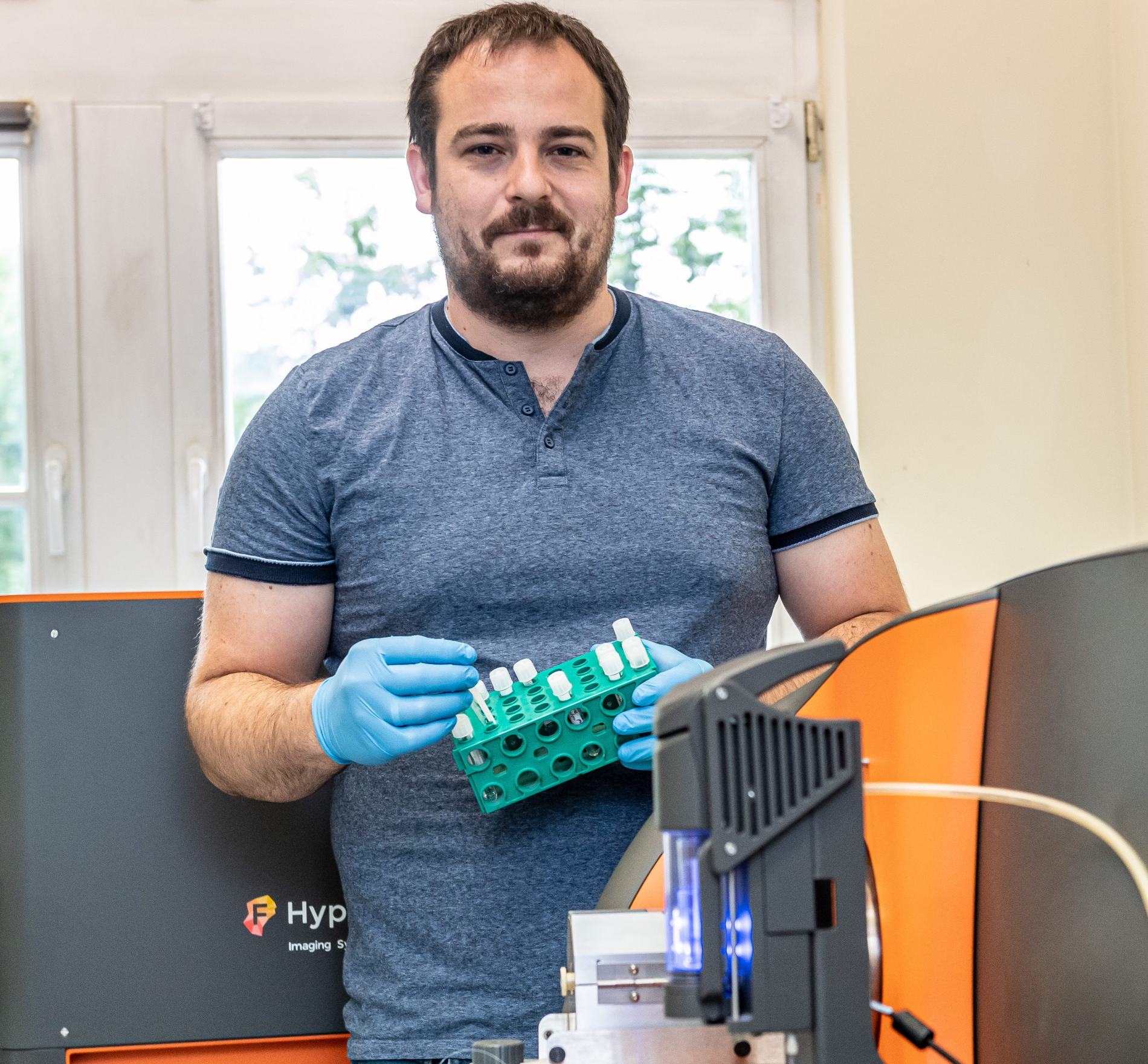YOUR BROWSER IS OUT-OF-DATE.
We have detected that you are using an outdated browser. Our service may not work properly for you. We recommend upgrading or switching to another browser.
Date: 08.08.2024 Category: general news, science/research/innovation

Recent research into the role of the caspase-2 enzyme, co-authored by Associate Professor Marcin Poręba, PhD, Dsc, Eng from the Faculty of Chemistry, showed that inhibition of its enzymatic activity leads to preventing the growth of cancer cells and, consequently, their death. The results have just been published in the journal “Science Advances“.
Prof. Marcin Poręba, who works at the Department of Biological Chemistry and Bioimaging of the Faculty of Chemistry and also holds the position of Vice-Dean for General Affairs at the Faculty of Medicine, is researching the role of caspase-2 in acute myeloid leukaemia in collaboration with the team headed by Lisa Bouchier-Hayes, PhD from the Children's Hospital in Houston, Texas (USA).
Their joint work resulted in the publication entitled “Caspase-2 is essential for proliferation and self- renewal of nucleophosmin-mutated acute myeloid leukemia”.
The authors examined the role of caspase-2 in the development of acute myeloid leukaemia (AML) connected with nucleophosmin (NPM1) mutations.
“The NPM1 mutation is a protein connected with the nucleus of the cell, and its mutations lead to the protein being displaced into the cytoplasm (NPM1c+), explains W3’s Prof. Marcin Poręba and adds that although these are the most common mutations driving the development of AML, the mechanisms behind their action are not fully understood.
However, the work of Prof. Poręba and Dr Bouchier-Hayes has shed new light on the role of caspase-2 in NPM1-mutated myeloid leukaemia. “This enzyme is crucial not only for apoptotic processes but also for the regulation of the cell cycle and the proliferation of cancer cells,” says the scientist from Wrocław University of Science and Technology. “We’ve shown that inhibition of the enzymatic activity of caspase-2 leads to inhibition of cancerous cells’ growth and subsequent death.
Our researcher’s role in the project was to develop new caspase-2 inhibitors that, in the long term, may help develop new therapies to enhance the treatment of this cancer.
The first steps in this direction were already taken in July 2024, at which time the Polish-American team submitted a joint grant R01 “Regulation of nucleophosmin mutated AML self-renewal by caspase-2” to the largest US research agency, the National Institutes of Health, NIH. The task of the group working at Wrocław University of Science and Technology, led by Prof. Poręba, will be to develop caspase-2 inhibitors that can be used in preclinical studies in mice with acute myeloid leukaemia.
“Caspases are a group of enzymes that play a key role in the process of programmed cell death,” explains Prof. Poręba. “They are activated in response to signals indicating cell damage or stress, leading to its controlled destruction.”

These can be divided into two groups. The first includes apoptotic caspases that initiate and carry out the process of apoptosis, which is immunologically silent and doesn’t cause an inflammatory response. Pyroptotic caspases, on the other hand, lead to rapid cell death, resulting in leakage of cell contents to the outside and inflammation.
 “The role of caspases in cell death is well known. Having said that, few people know that caspases are also involved in cell proliferation, and therefore in a process opposite to dying,” elaborates Prof. Poręba. “Under certain conditions, caspases can influence the cell cycle, facilitating cell division and regulating cell growth.
“The role of caspases in cell death is well known. Having said that, few people know that caspases are also involved in cell proliferation, and therefore in a process opposite to dying,” elaborates Prof. Poręba. “Under certain conditions, caspases can influence the cell cycle, facilitating cell division and regulating cell growth.
All this means that caspases play a complex role in maintaining the balance between life and cell death, which is crucial for the health of the body. In some cases, such as AML leukaemia with an NPM1 mutation, elevated caspase activity can lead to uncontrolled proliferation of these cells. Nonetheless, this makes these enzymes a good therapeutic target, as inhibiting their activity, e.g. with low-molecular-weight inhibitors, can kill cancer cells.
According to the Wrocław Tech researcher, caspases as therapeutic targets are currently experiencing a renaissance. “At the turn of the 20th century, several small biotechnology companies were established that aimed to develop caspase inhibitors for purposes including the treatment of cancer,” says Prof. Poręba. “Regrettably, these projects failed because the knowledge about the mechanism of caspases’ action and their interaction with different cellular pathways was missing, and the inhibitors themselves were in many cases toxic to healthy cells. We now know much more about the biology of these enzymes, which allows us to plan new therapeutic strategies more precisely.
The research on the role of caspase-2 in acute myeloid leukaemia was carried out in Poland under the Opus grant “Analysis of protease and protein kinase activity in acute lymphoblastic leukaemia using chemical probes and mass cytometry for personalised oncology diagnostics”, which was awarded to the team headed by Prof. Marcin Poręba by the National Centre for Science.
***
Prof. Marcin Poręba began to work with caspases while writing his doctoral thesis under the supervision of Prof. Marcin Drąg at Wrocław Tech’s Faculty of Chemistry.
 From 2016 to 2018, as part of a Marie Skłodowska-Curie Global Fellowship, he held a postdoctoral fellowship at the SBP Medical Discovery Institute in San Diego in the group led by Prof. Guy Salvesen, who is one of the world's foremost authorities on caspase research. The fellowship enabled Prof. Poręba to establish his research group at Wrocław University of Science and Technology.
From 2016 to 2018, as part of a Marie Skłodowska-Curie Global Fellowship, he held a postdoctoral fellowship at the SBP Medical Discovery Institute in San Diego in the group led by Prof. Guy Salvesen, who is one of the world's foremost authorities on caspase research. The fellowship enabled Prof. Poręba to establish his research group at Wrocław University of Science and Technology.
In addition, in 2018, together with Prof. Marcin Drąg, he set up Poland’s first mass cytometry laboratory at Wrocław Tech.
He manages numerous grants from the National Centre for Science and the National Centre for Research and Development. Prof. Drąg is the recipient of a Marie Skłodowska-Curie Actions (MSCA) Global Fellowship (2016-2018, SBP Medical Discovery Institute, San Diego, USA, group headed by Prof. Salvesen).
A co-founder and first chairman of the Biological Chemistry Section of the Polish Chemical Society (from 2022 to the present), he won the first edition of the Young Promoter of Poland competition in the Science category (2021). In recognition of his habilitation thesis, he received awards from the Polish Academy of Science and the Polish Chemical Society. Also, he was awarded the Silver Cross of Merit (2021).
Our site uses cookies. By continuing to browse the site you agree to our use of cookies in accordance with current browser settings. You can change at any time.